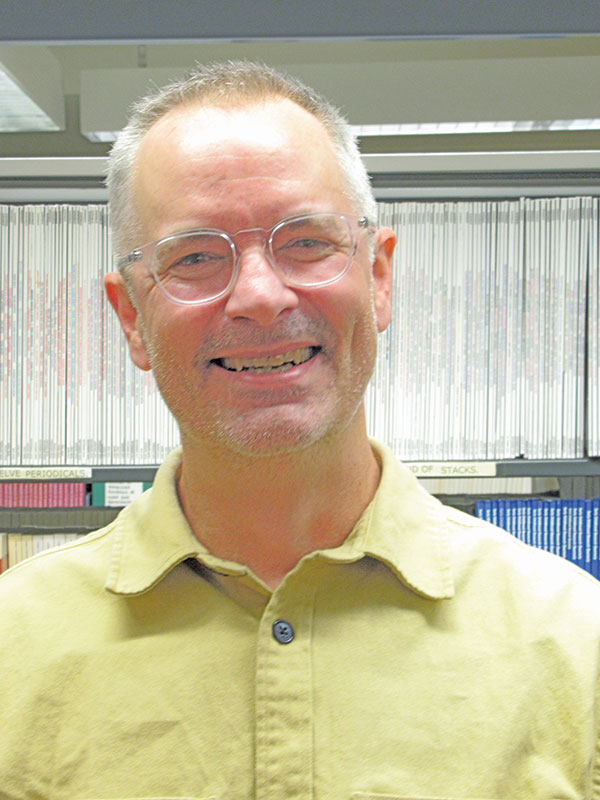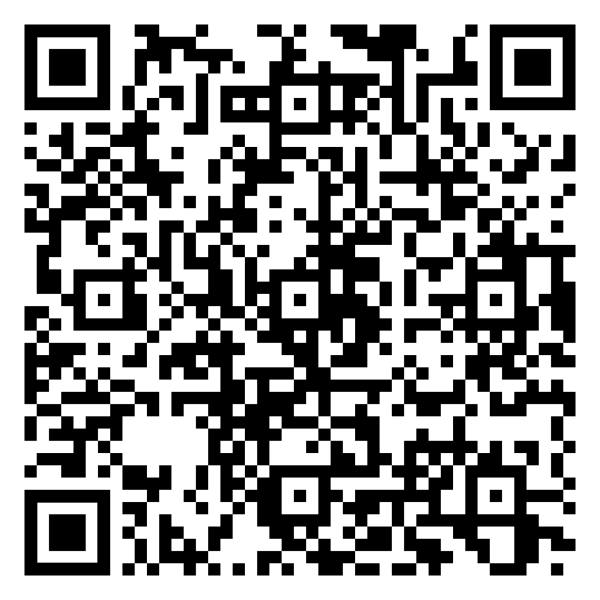A philosophical librarian
Jean-Paul Orgeron
NVU-Johnson Research Librarian Jean-Paul Orgeron, who arrived on the Johnson campus in late November, is a long way from his native Deep South.
He is originally from New Orleans, Louisiana, where he earned a bachelor’s degree and a Master of Library Science from Louisiana State University and a PhD in Philosophy from Tulane University.
“I lived there (New Orleans) nearly all my life until 2005, when Hurricane Katrina devastated the city… After Hurricane Katrina, my wife and I, along with our two young children, relocated to upstate New York. I taught philosophy for a number of years at SUNY Oneonta and, later, pivoted back to academic librarianship,” said Orgeron.
In August of 2022, shortly after the previous research librarian, Avery Olearczyk, left NVU, the search to fill this role began. In October, Orgeron was hired to do just that. “For me, librarianship is a teaching profession,” said Orgeron, “Using libraries, undertaking research, and preparing the results of your research – these are not intuitive activities. Students benefit from instruction in how library collections are arranged, how to access the content of those collections, and, perhaps most importantly, how to mobilize some portion of a collection to fulfill the objectives of a course. This can be accomplished in several ways, but usually the most impactful is when a librarian meets with a class and provides course-related instruction.”
Given Orgeron’s description of his role as a research librarian, his PhD in Philosophy doesn’t seem to have an immediately obvious connection to the job.
For Orgeron, however, the connection is very real. “I don’t think a PhD in philosophy or in another discipline is essential for success in librarianship,” said Orgeron, “but it does mean that I have a sort of prolonged and engaged experience in using library collections. I think the way that I conceptualize my time spent doing my PhD to my current position within librarianship is the experience of having used library collections to their utmost.”
Research librarians are important to a university library’s ability to function as intended. According to Orgeron, the biggest reason why research librarians are so essential is that they teach information literacy. “For a student to become information literate, they have to develop a deep understanding of how information is produced, how it is collected, and then how it is searched,” said Orgeron. “That process of becoming information literate for students in a college setting is not only fundamental to their education, but it’s also a skill that students develop over time.”
In a world where things are becoming more and more digital – where one can find almost any book, magazine, or article online, the importance of a physical library – especially on a college campus – might be questioned. “I think that the internet is good for handling things like titles, authors, and subject headings, and even an abstract of a book or an article.,” Orgeron said. “All of that language is searchable when you search it within a database. But if you’re then searching the full text of an article or book, your search is going to be inherently larger because you’re dealing with more words. And usually that makes the search experience less successful because you get a massive amount of results. So, as we say in librarianship, the recall rate is high but the relevance rate can be low.”
In reference to more students from younger generations who have grown up in the digital world joining the ranks of college students, Orgeron added, “In my very humble opinion, students – despite being labeled that they’re born digital – want information in a number of formats, and I have witnessed that students still like print books; they still like the tactile experience of a book. The format of the book is ancient, and we have yet to improve upon it. It may be a perfect thing for all we know.”
Orgeron’s love for libraries and for learning has always been an important part of his life. “My passion for learning and libraries comes from some place that I really can’t quite describe,” said Orgeron. “All I can say definitively about it is that I’m drawn to learning and I’m drawn to libraries. I’m drawn to the very idea that things are worthwhile collecting…[that] it’s worth it to collect things that people write. I think that idea in and of itself is remarkable.”
Orgeron’s advice for students largely concerns the importance of learning and learning from libraries: “Be inherently curious and read more. One of the best ways to learn how to be a good writer, which is really something I feel any employer values, is to read more… Any job that a student gets, they have to be an effective communicator. But in order to learn how to be an effective communicator, to be an effective writer, it’s essential to acquaint yourselves with models of effective communication, and in my experience, the best way to do that is to read as much as you can.”




